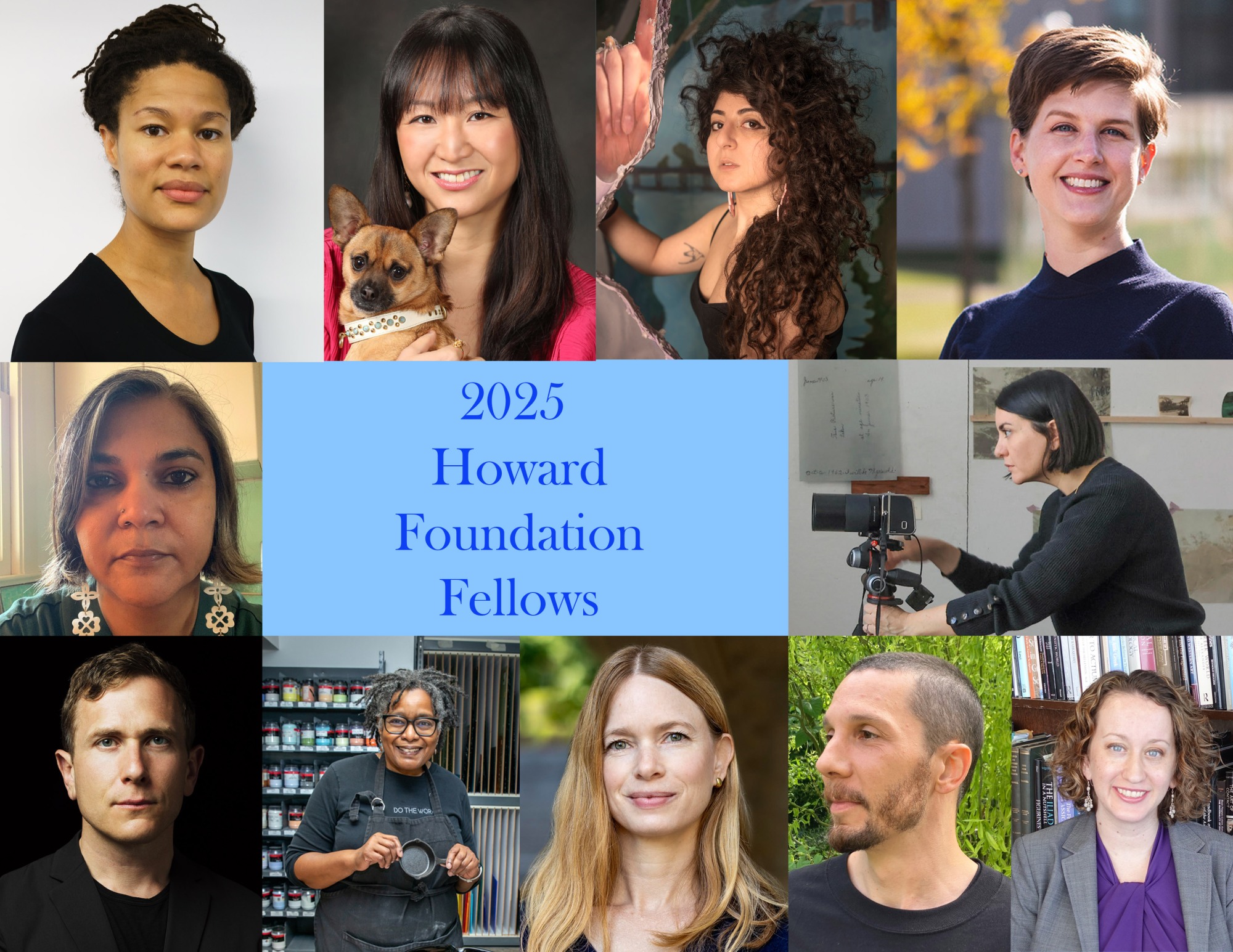
Current Fellowship Awardees
Current Fellowship Awardees
Meet the current Howard Foundation fellowship awardees.

Object Based Arts and Installation Based Arts
-
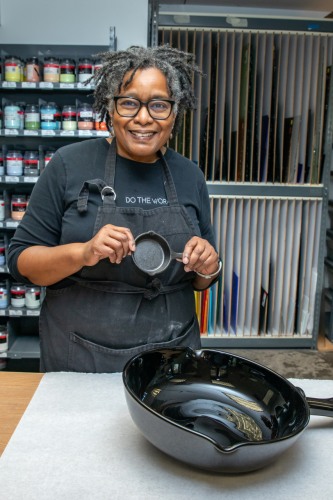
Cheryl Derricotte
Independent ArtistProject Title: Beyond Pictures on the Mantel
Cheryl Derricotte is a visual artist and her favorite mediums are glass and paper. Originally from Washington, DC, she lives and makes art in San Francisco, CA. Her art has been featured in the New York Times, The Guardian, The San Francisco Chronicle, MerciSF and the San Francisco Business Times. In 2021, She was awarded the commission to develop a monument to Harriet Tubman at the transit-oriented development Gateway at Millbrae Station, the first sculptural tribute to the abolitionist in glass. “Freedom’s Threshold,” a monument to Harriet Tubman, was unveiled on March 16, 2023.
In April 2025 and July 2024, Cheryl was a Visiting Artist at the Museum of Glass (MoG) in Tacoma, WA, commensurate with her work in the ground-breaking MoG exhibition, “A Two Way Mirror: Double Consciousness in Contemporary Glass by Black Artists.” Prior to MoG, Cheryl served as the Spring 2024 Marva and John Warnock Artist-in-Residence/Visiting Professor at the University of Utah, Department of Art and Art History.
She was also the 2023/2024 Kala Art Institute, Municipal Artist-in-Residence for the City of Berkeley’s Climate Equity Pilot Program. In 2022, Cheryl was named Inaugural BIPOC Artist-in-Residence at the Corning Museum of Glass: The Studio. Additional honors include the Black(Space) Artist Residency at Minnesota Street Projects; 2020 YBCA100; This Will Take Time – Oakland Residency; Villa San Francisco/French Consulate Micro-Residency; Windgate Craft Fellowship at the Vermont Studio Center; the Antenna/Paper Machine Residency (New Orleans); and the Hemera Foundation Tending Space Fellowship for Artists. Glass awards include the Rick and Val Beck Scholarship for Glass Art and the Alliance for Contemporary Glass’ Visionary Scholarship. Cheryl was an inaugural Emerging Artist at the Museum of the African Diaspora in 2015/2016, on the occasion of the Museum’s 10th Anniversary.
Her work is in the permanent collections of the deYoung Museum, the Historic New Orleans Collection, the Oakland Museum of California and the National Association of Homebuilders. Cheryl holds a B.A. in Urban Affairs (Minor: History), Barnard College, Columbia University; the Master of Regional Planning, Cornell University and the Master of Fine Arts, California Institute of Integral Studies. A licensed city planner and member of the American Institute of Certified Planners since 1995, she served as the inaugural Professional Development Officer of the new Arts & Planning Division of the American Planning Association, from 2021 - 2024.
-
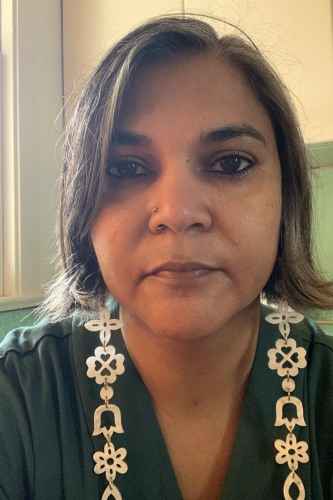
Priya Suresh Kambli
Professor of Art, Truman State UniversityProject Title: The idea of home follows me wherever I go
Priya Suresh Kambli, born 1975 in Mumbai, India, is an interdisciplinary artist working primarily with photographic media and installation. Kambli received her BFA from University of Lafayette, followed by her MFA from University of Houston.
For the past two decades Kambli has worked with a fragmentary archive, her family inheritance brought with her from India to the United States when she was 18 years old. This inheritance included family photographs, heirlooms, and documents packed in a suitcase that weighed 45 kilograms. In her work she has revisited, rephotographed, and recontextualized her archive to create personal work addressing her migrant narrative and feminist practice.
She is the winner of 2025 Leica Women Foto Project Award; Creator Labs Photo Fund, Aperture and Google’s Creator Labs. She is the 2025 MacDowell Fellow and has participated in other residencies including at the Headlands Center for the Arts, Light Work and Visual Studies Workshop. Her work has been published in Aperture, Musee Magazine and Art India. Her work has been exhibited at Nelson Atkins Museum of Art, Nerman Museum of Contemporary Arts, and Museum of Contemporary Art Arlington, and collected by Duke University, Museum of Fine Arts, Houston, and Museum of Contemporary Photography, Chicago.
-
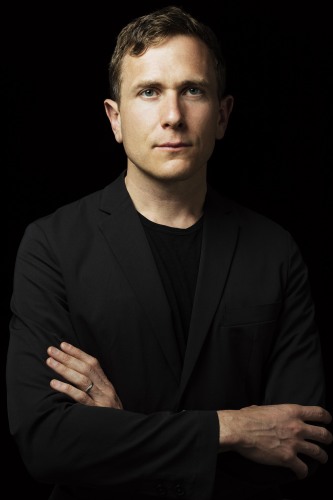
Alan Ruiz
Independent ArtistProject Title: Containing Anxiety
Alan Ruiz is an artist whose work examines the production of space as both material and ideology. Through site-reflexive interventions, his work enumerates how architecture enables and obstructs forms of psychic and social life. In his work, he explores constructed space, as well as the various techniques, standards, and media that shape architectural form, to consider the way these mechanisms may reflect social hierarchies, relations of authority, and unconscious processes.
His investigation of what the built environment contains and excludes extends into the discursive form of writing, public lectures, and workshops. Ruiz has presented talks and participated in public programs at The Chinati Foundation, the Dia Art Foundation, Kunstverein München, The Artist’s Institute, and SculptureCenter. His writing has been published in Women & Performance: a journal of feminist theory, Organisational and Social Dynamics, Artforum, Institute for Studies on Latin American Art (ISLAA), BOMB, and Movement Research Performance Journal. He has held recent solo exhibitions at the Wadsworth Atheneum Museum of Art, Hartford, CT (2024); CCS Hessel Museum of Art, Annandale-on-Hudson, NY (2022); and The Kitchen, New York (2021). Ruiz is a recipient of a Creative Capital Award and a NYSCA/NYFA Fellowship in Architecture.
-
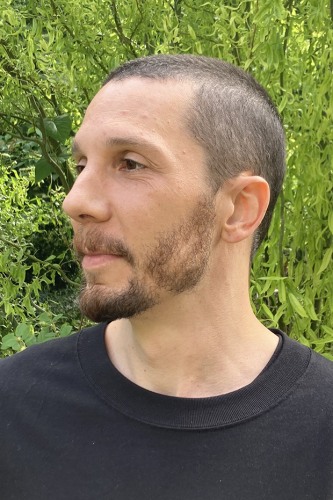
Matthew Schrader
Assistant Professor of Studio Art at Middlebury CollegeProject Title: Material Memory
Matthew Schrader is an artist and educator. Schrader’s work moves between sculpture, photography, and spatial intervention. Recent projects have engaged aspects of public space, colonized landscapes and plant migration. He received an MFA in Sculpture from the Milton Avery Graduate School of the Arts at Bard College and a BFA from the Rhode Island School of Design. Schrader’s work has appeared in exhibitions at MoMA PS1, White Columns, Franz Kaka, Brief Histories, Someday, P!, and The Abrons Art Center. He is a recipient of the Rema Hort Mann Foundation Emerging Artist Grant in New York City. Schrader has been faculty in the Sculpture discipline at the Milton Avery Graduate School of the Arts at Bard College since 2021, and served as co-chair from 2022-2024. He is currently an Assistant Professor at Middlebury College.
-
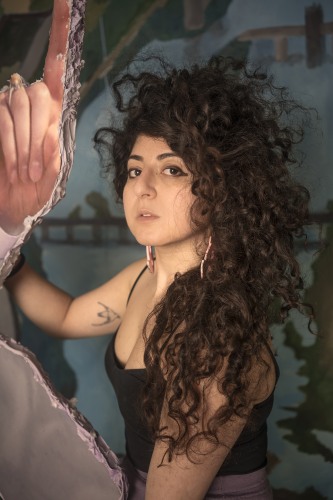
Sheida Soleimani
Associate Professor of Studio Art at Brandeis UniversityProject Title: Ghostwriter
Sheida Soleimani (b. 1990) is an Iranian-American artist, educator, and activist. The daughter of political refugees who escaped Iran in the early 1980s, Soleimani makes work that excavates the histories of violence linking Iran, the United States, and the Greater Middle East. In working across form and medium—especially photography, sculpture, collage, and film—she often appropriates source images from popular/digital media and resituates them within defamiliarizing tableaux. The composition depends on the question at hand. For example, how can one do justice to survivor testimony and to the survivors themselves (To Oblivion)? What are the connections between oil, corruption, and human rights abuses among OPEC nations (Medium of Exchange)? How do nations work out reparations deals that often turn the ethics of historical injustice into playing fields for their own economic interests (Reparations Packages)? How may the layering of memory and familial history both report fact, and produce a reckoning with the intimate resonances of a geopolitics of violence (Ghostwriter)? In contrast to Western news, which rarely covers these problems, Soleimani makes work that persuades spectators to address them directly and effectively.
Soleimani’s work is held in permanent collections including the Guggenheim Museum, Museum of Fine Arts Boston, Pennsylvania Academy of Fine Arts, MIT List Visual Art Center, and Kadist Paris. Her work has been recognized internationally in both exhibitions and publications such as The New York Times, Financial Times, Art in America, Interview Magazine, amount many others. Based in Providence, Rhode Island, Soleimani is also an associate professor of Studio Art at Brandeis University and a federally licensed wildlife rehabilitator.
-
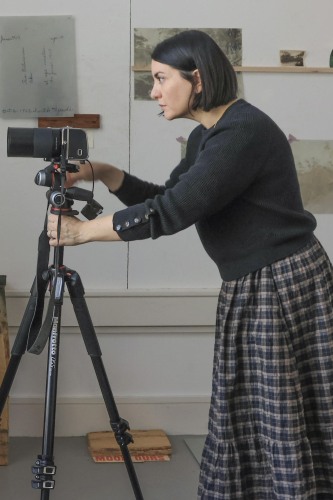
Toni Pepe
Chair of Photography and Associate Professor of Art at Boston UniversityProject Title: Can I Hold You?
Toni Pepe creates prints and three-dimensional assemblages from discarded newspaper images, family snapshots, and obsolete photographic equipment, investigating how photography shapes our understanding of time, space, and self. Her practice explores the layers of information a print conveys beyond its image—whether through the presence of text, subtle stains, or crop marks—each detail offering insight into the photograph’s journey and its significance as a physical object. More than static images, photographic prints capture and suspend our likenesses and histories, bearing the marks of time and physical interaction.
Pepe is the Chair of Photography and Associate Professor of Art at Boston University. Her work has been exhibited nationally and internationally at institutions such as Blue Sky Gallery, the Center for Photography at Woodstock, and the Museum of Fine Arts, Boston (MFA). Her work is included in several permanent collections, including the MFA Boston, the Boston Athenaeum, Fidelity, the Boston Public Library, Candela Books + Gallery, The Magenta Foundation, and numerous private collections. She was a resident at Frans Masereel Centrum, a MacDowell Fellow, and was recently named the Evelyn Stefansson Nef Fellow.
Art History, Architecture, and Visual Culture
-
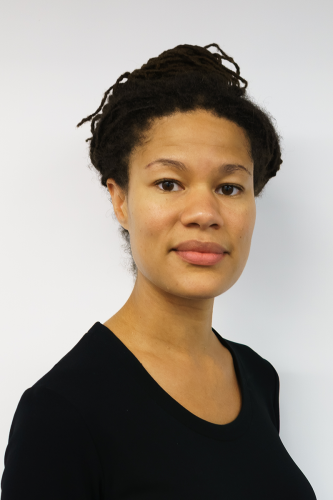
Emilie Boone
Assistant Professor of Art History; New York UniversityProject Title: Haiti Chooses You: Notes on a Caribbean History of Photography
Emilie Boone is an assistant professor of African American/African Diaspora Arts in the Department of Art History at New York University. She researches and teaches the art and visual culture of the African Diaspora with a focus on vernacular photography and global encounters. She is the author of A Nimble Arc: James Van Der Zee and Photography (Duke University Press, 2023) which received a Wyeth Foundation for American Art Publication Grant, was honored as a finalist for The National Book Critics Circle Awards John Leonard Prize, and was shortlisted for the MAAH Stone Book Award.
Her scholarship appears in Art Journal, American Art, Metropolitan Museum of Art Journal, African Arts, and History of Photography. Additional essays are included in the first comprehensive publications on the history of Haitian photography and African Canadian art history, as well as museum catalogs by UCLA and the Art Institute of Chicago. She has received fellowships and grants from the Institute for Citizens & Scholars (formerly the Woodrow Wilson Foundation), the Metropolitan Museum of Art, the Terra Foundation for American Art, the Smithsonian American Art Museum, and Fulbright.
Boone’s curatorial projects include an installation of photographs at the Metropolitan Museum of Art inspired by Wangechi Mutu’s sculptures, the creation of CUNY New York City College of Technology’s “Vernacular Photographs of Black Women Archive” from the Peter J. Cohen Collection, and multiyear contributions to The Ghetto Biennale, Port-au-Prince, Haiti.
In her current research, one project considers a historiographic reappraisal of Jeanne Moutoussamy-Ashe’s important 1986 survey Viewfinders: Black Women Photographers. She is also working on her second manuscript about the history of photography in Haiti, a project that examines how one island can illuminate the nature of photography’s sweeping force on various interlocutors across time. An article relating to this manuscript, “When Images in Haiti Fail: The Photograph of Charlemagne Péralte,” was published in 2022 and received the Art Journal Award. The advancement of this second manuscript project received support from The Clark Art Institute, The Andy Warhol Foundation, and the Perez Art Museum Miami Caribbean Cultural Institute.
Before joining NYU, Boone served as a faculty member at CUNY New York City College of Technology and as an elected faculty member to the Art History Program at the CUNY Graduate Center. She teaches three undergraduate courses each academic year in the Department of Art History and, through an associate appointment, one graduate course at the Institute of Fine Arts. For summer j-terms 2024 and 2025, she expanded her teaching to NYU Abu Dhabi. Boone’s pedagogy is influenced by her research; in courses, such as “Shifting Perspectives in African American Art” and “Centering Photography of the African Diaspora,” students consider the most pressing questions in art history.
-
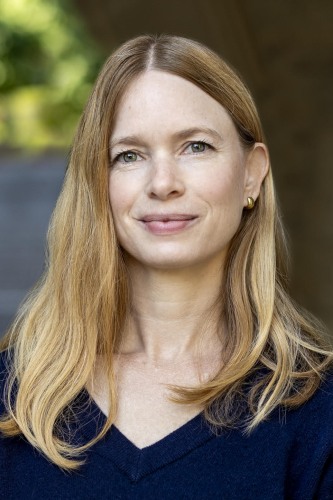
Aurelia Campbell
Associate Professor, East Asian Art History and Departmental Chairperson at Boston CollegeProject Title: In Death as in Life: A Material History of Ming Dynasty Tombs
Aurelia Campbell’s research centers on architecture and material culture from the Yuan, Ming, and Qing dynasties (1279-1911) in China. She is interested in issues concerning materials and technologies, sacred objects and spaces, and the relationship between the imperial court and outlying regions.
Her first book, What the Emperor Built: Architecture and Empire in the Early Ming (University of Washington Press, 2020), examines the building projects of the famous Yongle emperor to consider how imperial ideology takes shape in built space. It was awarded the Bei Shan Tang Monograph Prize (most outstanding and innovative monograph on Chinese art history) from the Association for Asian Studies in 2023 and the honorable mention for the Alice Davis Hitchcock Book Award (most distinguished work of scholarship in the history of architecture) from the Society of Architectural Historians in 2022. Her second book, In Death as in Life: A Material History of Ming Dynasty Tombs (in progress), moves away from the imperial, monumental, and expansive and towards sites of much more intimate scale: individuals’ tombs. Focusing on the Ming dynasty, the book examines new approaches to tomb space, grave goods, and the treatment of the body in light of contemporaneous social and economic developments.
She has engaged in several projects that help to advance the field of Chinese architectural history. This includes compiling three annotated bibliographies for Oxford Bibliographies on the subjects of Palace Architecture in Premodern China, Buddhist Architecture in Imperial China, and Architecture of the Ming and Qing Dynasties. Since 2018 she has also been involved in an international collaboration to create an English dictionary of traditional Chinese architectural terminology.
Her research has been supported through grants and fellowships from the Millard Meiss Publication Fund, James Geiss Foundation, Asian Cultural Council, Association for Asian Studies, and Metropolitan Center for Far Eastern Art Studies, among others. She has held visiting research positions at Peking University in Beijing (2009-2010) and the Max Planck Institute for the History of Science in Berlin (2016-2017). Since 2022, she has served as the Visual Arts Editor for the journal Religion and the Arts.
-
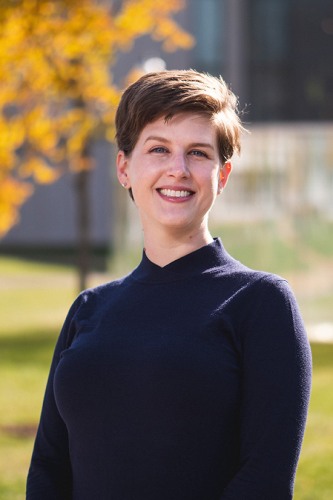
Kristina Kleutghen
David W. Mesker Associate Professor of Art History and Archaeology; Washington University in St. LouisProject Title: Lens onto the World: Optical Devices, Art, Science, and Society in China
Kristina Kleutghen is a specialist in Chinese art, particularly of the Qing Dynasty (1644-1911). Her research investigates cross-cultural interaction, the imperial court, optical devices, and connections to science and mathematics. Her first book, Imperial Illusions: Crossing Pictorial Boundaries in the Qing Palaces, was published in 2015 by University of Washington Press. Her second book, on exoticizing decorative objects produced for the eighteenth-century emperors of China, is forthcoming with University of Washington press. The Howard Foundation fellowship will fund fieldwork for her third book project, Lens onto the World: Optical Devices, Art, Science, and Society in China.
-
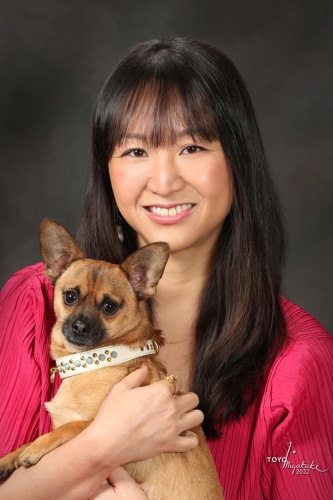
Marci Kwon
Assistant Professor of Art History at Stanford University, and co-director of the university’s Asian American Art Initiative.Project Title: Making San Francisco Chinatown
Marci Kwon is Assistant Professor of Art History at Stanford University, and co-director of the university’s Asian American Art Initiative. Her work explores alterity, minorness, value, and the ethics of relation in art and material culture, with a special focus on the history of Asian American/diasporic artists and makers. Kwon’s writing has appeared in Third Text, Modernism/Modernity Print+, Panorama: Journal of the Association of Historians of American Art, and in edited volumes about the early history of the Museum of Modern Art, social art history, folk and self-taught art, and the K-pop group BTS. She has contributed catalog essays to exhibitions at the San Francisco Museum of Modern Art, the KW Institute for Contemporary Art, and the Museum of Modern Art. She is a co-editor of the online Martin Wong Catalogue Raisonné, and an editorial advisor to May’s Photo Studio and the Golden Age of San Francisco Chinatown, a Google Arts & Culture Project. Kwon’s first monograph, Enchantments: Joseph Cornell and American Modernism was published by Princeton University Press in 2021. At Stanford, Kwon is a faculty affiliate of the Center for Comparative Studies in Race and Ethnicity, Asian American Studies, American Studies, the Center for East Asia, and Feminist and Gender Studies, and serves on the steering committee of Modern Thought and Literature. She is the recipient of the Asian American Studies Faculty Prize, the Center for Comparative Studies in Race and Ethnicity Teaching Award, the Phi Beta Kappa Teaching Award, the Faculty Women's Forum's Inspiring Early Career Academic Award, the Mellon Emerging Faculty Leaders Award, and the Andy Warhol Foundation Arts Writers Grant.
-
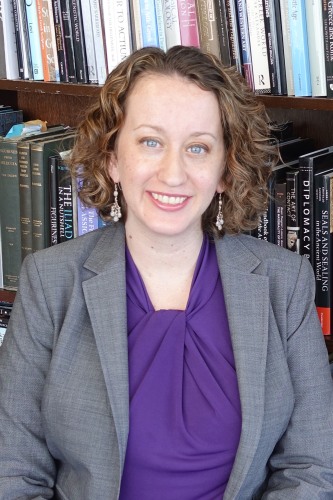
Stephanie Langin-Hooper
Associate Professor and the Karl Kilinski II Endowed Chair in Hellenic Visual Culture in the Department of Art History at Southern Methodist University.Project Title: Inventing Epiphany: Miniature Arts in Hellenistic Babylonia
Stephanie Langin-Hooper is a scholar of ancient Mesopotamian and ancient Greek art history. Her primary research concerns the role of miniature objects – figurines, seals, coins, and jewelry – as instruments of identity creation and mediators of social relationships in the multicultural environment of Seleucid-Parthian Babylonia (southern Iraq, after the conquests of Alexander the Great, c. 330 BCE – 224 CE). Her first book, Figurines in Hellenistic Babylonia: Miniaturization and Cultural Hybridity, was published by Cambridge University Press in 2020. Her articles have appeared in publications such as the American Journal of Archaeology, Cambridge Archaeological Journal, IRAQ, World Archaeology, Pallas: Revue d’Études Antiques, and Oxford Journal of Archaeology. Along with Becky Martin, she co-edited The Tiny and the Fragmented: Miniature, Broken, or Otherwise Incomplete Objects in the Ancient World, published by Oxford University Press in 2018.
The Howard Foundation fellowship will fund the completion of her second book project, entitled Inventing Epiphany: Divine Manifestation, Scale, and Sensory Experience in the Miniature Arts of Hellenistic Babylonia. This project explores how divine beings – gods and goddesses, supernatural creatures, constellations and other astronomical phenomena – were shown to appear, move, and interact with humans in the miniature artworks from Hellenistic Babylonia. These small-scale revelations of the gods were a more personal expression of the concepts of divine manifestation underpinning the official priestly practice of Babylonian zodiac astrology. A significant contribution of this project will be to trace how Babylonian religious frameworks and the miniature artworks that embodied them were an inspiration and catalyst for the development of Hellenistic belief in divine epiphany.